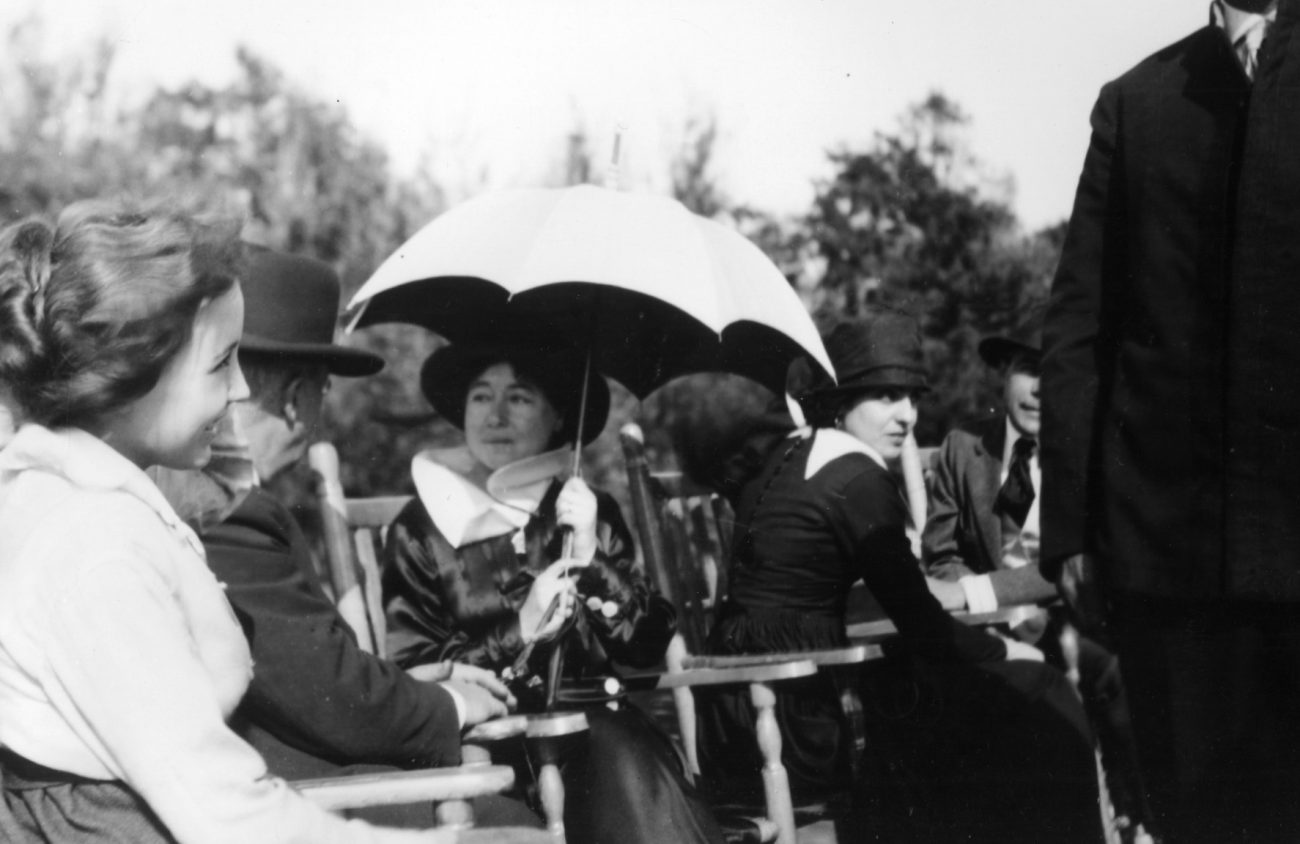This is the stuff of legend, or should be: On March 22, 1895, a French camera manufacturer named Léon Gaumont attended a private screening of the first-ever motion picture footage by the Lumière brothers at the Salon Indien du Grand Café in Paris. To all extents and purposes, this “surprise” revelation of grainy black-and-white images flickering to life across a screen hails the advent of movies as we know and love them.
It would be impossible to underplay the significance of this event. But, as a fairy tale of modern Hollywood, it’s woefully — in fact, disgracefully — incomplete. Because, seated beside Gaumont at that miraculous moment was a young secretary he’d brought along to take notes on the Lumières’ work. And in a theater full of competitive, brilliant men racing to master this stunning new technology, it was this dutiful stenographer, and she alone, who began to dream the movies to life.
Her name was Alice Guy-Blaché. Remember that name, commit it to memory, salute it. As she sat watching the documentary footage of workers leaving the Lumière plant, Guy-Blaché had a revolutionary idea: Why not tell stories with this new technology? She asked Gaumont if she could give it a go, and he let her.
Hence, in 1896, was born The Cabbage Fairy, the world’s first narrative film. As detailed in the wonderful, infuriating new documentary, Be Natural: The Untold Story of Alice Guy-Blaché, this pioneering woman would go on to direct, write and produce thousands of films in every conceivable genre (drama, comedy, capers, war, romance) while also inaugurating a series of techniques and styles that have become the grammar of modern cinema: close-ups, synchronized sound, forced perspective.
Moving to Fort Lee, New Jersey, with her husband, Herbert Blaché, she founded her own film studio, Solax, which set the professional and artistic standard for what would become Hollywood — known as the “Gaumont house style.” Masters like Eisenstein and Hitchcock were among her admirers.
Yet, today, Alice Guy-Blaché has been all but written out of cinematic and popular history — Eve erased by a thousand Adams, a victim of ignorance and accident and a lot of misogynistic bullshit.
Directed by Pamela B. Green, this documentary is at once a love letter to and a furious argument for the lasting legacy and inarguable genius of Guy-Blaché. Part detective story and part historical reparation, it goes the distance in bringing her to full life, including tons of archival interviews with the woman herself and testimony from today’s leading directors. As filmmaker Agnes Varda says: “She has to be recognized, because for a long time she was kept in obscurity.”
Or Martin Scorsese: “She was a filmmaker of rare sensitivity with a remarkable poetic eye. She was more or less forgotten by the industry she helped create.”
Yet despite the grotesque crime of her historical erasure, the film does not look back in anger. Like the medium she largely founded, Be Natural is above all a wise and joyful celebration of the movies themselves — their artistic worth, their creative force, their progressive oomph as a social artifact (Guy-Blaché’s 1906 film The Consequences of Feminism is as timely as ever).
“It was my fate, if you will,” she says of her own career, with a combination of modesty and awe, and we can only hope it is also her fate to be rescued from the social amnesia that has, until now, vanquished her from her rightful status as one of the world’s first and most influential filmmakers. (Broadway Metro)
